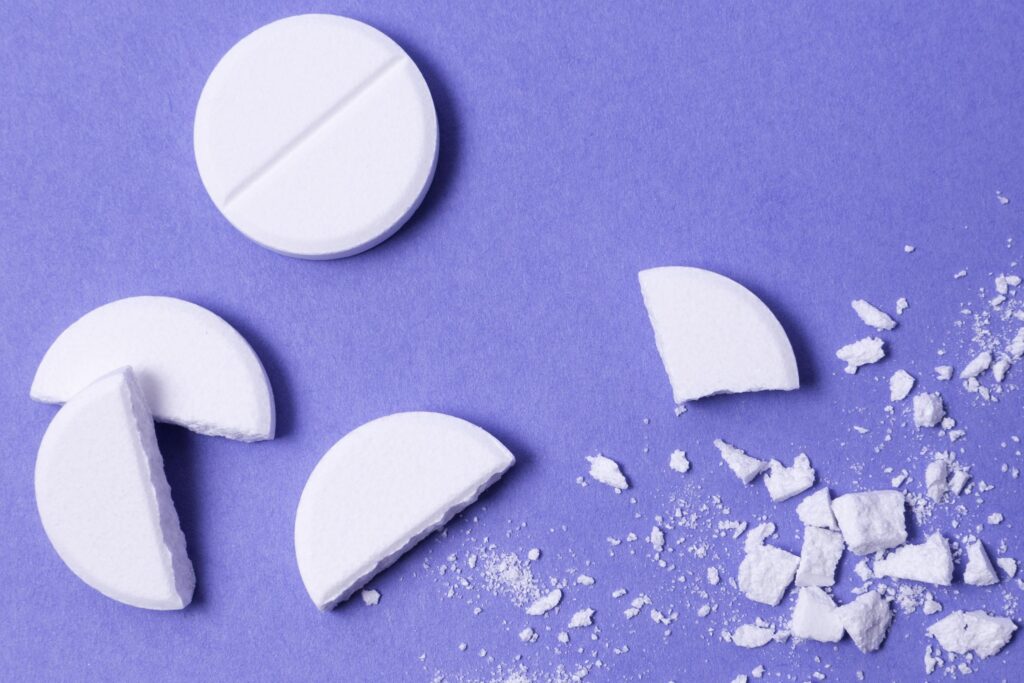Fentanyl Withdrawal Timeline: Symptoms, Stages, and Recovery

Key Points
- Fentanyl is a powerful opioid that leads to severe physical dependence.
- Withdrawal symptoms typically begin within 6-12 hours after the last dose.
- Symptoms peak around 2-4 days and may last for weeks.
- Medical detox and professional treatment greatly improve recovery outcomes.
- Post-acute withdrawal syndrome (PAWS) can last for months, requiring long-term support.
- Maple Moon Recovery provides expert care to safely manage withdrawal and long-term sobriety.
What is Fentanyl?
Fentanyl is a synthetic opioid that is 50 to 100 times more potent than morphine. It is commonly prescribed for severe pain management, but its high potency also makes it one of the most dangerous drugs in the opioid crisis. Many individuals who use fentanyl develop a strong physical dependence, making withdrawal an inevitable and often painful experience when attempting to quit. [1][3]
Understanding the fentanyl withdrawal timeline, symptoms, and available treatment options is essential for anyone considering recovery. If you or a loved one is struggling with fentanyl addiction, Maple Moon Recovery offers a compassionate, structured approach to help you safely navigate withdrawal and begin a new life free from opioids.
Understanding Fentanyl Withdrawal
Fentanyl withdrawal occurs when the body, which has become dependent on the drug, struggles to function without it. As fentanyl binds to opioid receptors in the brain, it creates powerful pain relief and euphoria while suppressing natural opioid production. When fentanyl use stops, the body goes into shock, triggering a range of withdrawal symptoms. [1][3]
Why Is Fentanyl Withdrawal So Intense?
- High Potency: Because fentanyl is much stronger than heroin or prescription opioids, it creates a greater level of dependence.
- Short Half-Life: Fentanyl leaves the system quickly, leading to rapid onset withdrawal.
- Extended Symptoms: Even after acute withdrawal subsides, post-acute withdrawal syndrome (PAWS) can last for weeks or months.
- Emotional Impact: The loss of fentanyl’s numbing effects can cause severe mood swings and psychological distress.
Signs of Fentanyl Withdrawal & Timeline
6-12 Hours: Early Withdrawal Symptoms Begin
As fentanyl exits the bloodstream, the first symptoms of withdrawal emerge, often resembling severe flu-like illness.
- Anxiety and restlessness
- Sweating and chills
- Muscle aches
- Insomnia
- Runny nose and excessive yawning
- Loss of appetite
- Increased sensitivity to pain
24-48 Hours: Symptoms Intensify
Withdrawal reaches its peak intensity within the first two days, and symptoms can feel unbearable without proper medical support.
- Severe cravings for fentanyl
- Nausea, vomiting, and diarrhea
- Elevated heart rate and high blood pressure
- Muscle spasms and body aches
- Irritability and emotional distress
- Tremors and uncontrollable shaking
- Dehydration and extreme fatigue
3-7 Days: Gradual Improvement
While symptoms remain severe, many individuals begin to experience slight relief as the body starts to regulate itself.
- Continued fatigue
- Depression and mood swings
- Digestive issues may persist
- Cravings may still be intense
- Sleep disturbances remain common
- Body temperature regulation issues (hot and cold flashes)
- Difficulty concentrating
2-4 Weeks: Post-Acute Withdrawal Symptoms (PAWS)
Even after the worst symptoms subside, many people struggle with ongoing issues.
- Depression and anxiety
- Lingering drug cravings
- Sleep disturbances
- Difficulty concentrating
- Mood instability
- Loss of motivation and energy
- Increased risk of relapse
This is a critical phase where professional treatment can make the difference between relapse and long-term recovery.
Managing Fentanyl Withdrawal Safely
Going through fentanyl withdrawal without medical supervision can be dangerous and often leads to relapse. At Maple Moon Recovery, we provide safe and effective detox programs tailored to each individual’s needs.
How Maple Moon Recovery Can Help
- Medical Detox: Our licensed medical team provides 24/7 care to manage withdrawal symptoms safely.
- Medication-Assisted Treatment (MAT): Medications like buprenorphine or methadone can ease withdrawal symptoms and reduce cravings.
- Holistic Therapies: Yoga, meditation, and nutritional counseling support overall well-being during recovery.
- Behavioral Therapy: Addressing the emotional and psychological roots of addiction is key to long-term sobriety.
- Individualized Aftercare Plans: Long-term support to prevent relapse and maintain sobriety.
Why You Should Seek Professional Help
Many individuals attempting to quit fentanyl relapse due to unbearable withdrawal symptoms. With the right support, you don’t have to face this alone.
- Supervised detox prevents severe complications.
- Counseling and support groups provide emotional stability.
- Long-term treatment plans create the foundation for lasting sobriety.
- Mental health support addresses co-occurring disorders like anxiety and depression.
📞 Take the first step toward a new life. Call Maple Moon Recovery today for compassionate, expert care.
Different Types of Opioids
Opioids come in a variety of forms, each differing in strength, duration, and medical use. They are classified into natural, semi-synthetic, and synthetic categories:
- Natural opioids (opiates): Derived directly from the opium poppy plant, examples include:
- Morphine
- Codeine
- Semi-synthetic opioids: Chemically modified from natural opiates. Common examples include:
- Synthetic opioids: Entirely man-made but act on the same brain receptors. Examples include:
- Fentanyl (extremely potent, used in medical and illicit settings)
- Methadone (used for pain and opioid use disorder treatment)
- Tramadol (considered less potent but still addictive)
Each of these substances has a high potential for dependence and overdose, particularly when used outside of prescribed guidance or mixed with other depressants like alcohol or benzodiazepines.
Fentanyl Withdrawal FAQs
1. How long does fentanyl withdrawal last?
The acute phase typically lasts 5-7 days, while post-acute withdrawal symptoms (PAWS) can persist for weeks or months.
2. Can fentanyl withdrawal be fatal?
While fentanyl withdrawal itself is not usually life-threatening, complications such as dehydration, heart issues, and mental health crises can arise. Medical supervision is strongly recommended.
3. What medications help with fentanyl withdrawal?
Medications such as buprenorphine, methadone, and clonidine can help alleviate withdrawal symptoms and support recovery.
4. What are the best treatment options for fentanyl addiction?
A combination of medical detox, behavioral therapy, and long-term aftercare offers the best chance of recovery.
5. Where can I find professional fentanyl addiction treatment?
Maple Moon Recovery provides expert treatment designed to help individuals safely overcome fentanyl addiction. Call us today to start your recovery journey!
Sources:
- NIDA – Fentanyl Drug Facts: [1]
- SAMHSA – National Helpline: [2]
- CDC – Opioid Overdose Prevention: [3]
- DEA – Fentanyl Awareness: [4]
- National Harm Reduction Coalition: [5]
🩺 Professionally Reviewed by:

Share This Post



